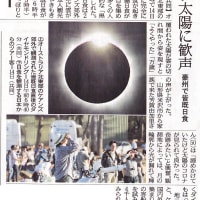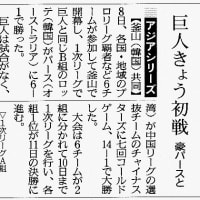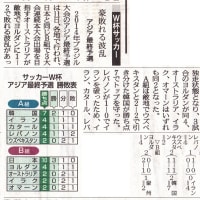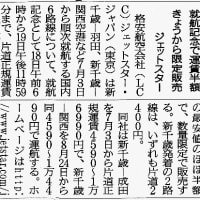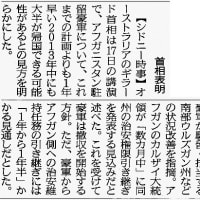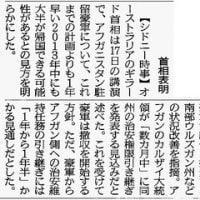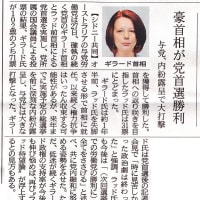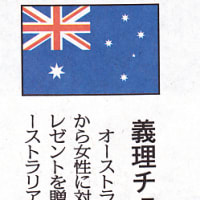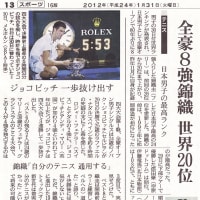今日は日本中がこのニュースであふれていました。
シドニーモーニングヘラルドの記事を紹介します。

September 6, 2006 - 11:36AM
Japanese Princess Kiko arrives at a hospital in Tokyo as she is
admitted for complications related to her pregnancy. last month.
Japan's Princess Kiko has given birth to the royal family's first
boy in more than 40 years, ending for now a succession crisis and
silencing calls to let a woman sit on the throne.
The princess, just one week shy of her 40th birthday, gave birth
to the third in line to the Chrysanthemum Throne at 8.27am today,
the palace said.
"This morning Princess Kiko had an imperial prince," an Imperial
Household Agency spokesman said.
The boy weighed a light 2.6 kilograms, media reports said.
In the first of a series of imperial rituals, Emperor Akihito was
to give his fourth grandchild a ceremonial sword. He will be
named later.
All television networks cut in to special programs on the royal
birth, airing past footage of the ever-smiling princess, a housewife
who grew up in a middle-class apartment and already has two daughters.
The boy is the first to be born to the royal family since his own
father Prince Akishino, the emperor's second son, in 1965.
The boy could ease pressure on Crown Princess Masako, a former
career woman who has suffered stress and mental illness trying
to adapt to the tradition-bound palace. Masako and Crown Prince
Naruhito have one child, four-year-old Princess Aiko, in 13 years
of marriage.
The surprise news that Princess Kiko was pregnant more than a
decade after her last child in 1994 delighted conservatives, who
believe the monarchy has passed along a paternal line for more
than 2600 years.
Prime Minister Junichiro Koizumi, a reformist who steps down
later this month, had supported introducing female succession,
putting Aiko in line to the throne, an idea previously backed
by a majority of the public.
But under pressure from the conservative wing of his Liberal
Democratic Party, he dropped his proposed reform of Imperial
House Law after news of Princess Kiko's pregnancy.
The frontrunner to replace Mr Koizumi, conservative Chief
Cabinet Secretary Shinzo Abe, has criticised female succession.
"Discussions on the imperial succession issue will subdue
for a while and encourage conservatives to push for the continuation
of a paternal line," said Kouichi Yokota, a professor of law at
Ryutsu Keizai University.
"But that does not mean the debate is over," said Professor Yokota,
a royal expert.
"There is no guarantee of the continued existence of the imperial
family unless flexible succession rules are introduced."
There were eight female emperors in Japanese history, but all
were direct descendants of male emperors and succession returned
to the paternal line after each female emperor abdicated.
Mr Koizumi's proposal, which was written by a panel of experts
and prominent public figures, would have put Princess Aiko in line
to the throne and let her first child follow her, regardless of sex.
The royal family is widely revered in Japan and the birth was
expected to give a boost to the economy.
Toshihiro Nagahama, a senior economist at Dai-ichi Life
Research Institute, estimated the royal birth could bring
about 150 billion ($1.68 billion) to the economy as more people
decided to get married or have children.
Mr Koizumi has voiced hope that Princess Kiko's pregnancy would
encourage Japanese to have children. The population shrank last
year for the first time since World War II, a problem blamed in
part on the cultural difficulties for Japanese women to juggle
careers and families.
シドニーモーニングヘラルドの記事を紹介します。

September 6, 2006 - 11:36AM
Japanese Princess Kiko arrives at a hospital in Tokyo as she is
admitted for complications related to her pregnancy. last month.
Japan's Princess Kiko has given birth to the royal family's first
boy in more than 40 years, ending for now a succession crisis and
silencing calls to let a woman sit on the throne.
The princess, just one week shy of her 40th birthday, gave birth
to the third in line to the Chrysanthemum Throne at 8.27am today,
the palace said.
"This morning Princess Kiko had an imperial prince," an Imperial
Household Agency spokesman said.
The boy weighed a light 2.6 kilograms, media reports said.
In the first of a series of imperial rituals, Emperor Akihito was
to give his fourth grandchild a ceremonial sword. He will be
named later.
All television networks cut in to special programs on the royal
birth, airing past footage of the ever-smiling princess, a housewife
who grew up in a middle-class apartment and already has two daughters.
The boy is the first to be born to the royal family since his own
father Prince Akishino, the emperor's second son, in 1965.
The boy could ease pressure on Crown Princess Masako, a former
career woman who has suffered stress and mental illness trying
to adapt to the tradition-bound palace. Masako and Crown Prince
Naruhito have one child, four-year-old Princess Aiko, in 13 years
of marriage.
The surprise news that Princess Kiko was pregnant more than a
decade after her last child in 1994 delighted conservatives, who
believe the monarchy has passed along a paternal line for more
than 2600 years.
Prime Minister Junichiro Koizumi, a reformist who steps down
later this month, had supported introducing female succession,
putting Aiko in line to the throne, an idea previously backed
by a majority of the public.
But under pressure from the conservative wing of his Liberal
Democratic Party, he dropped his proposed reform of Imperial
House Law after news of Princess Kiko's pregnancy.
The frontrunner to replace Mr Koizumi, conservative Chief
Cabinet Secretary Shinzo Abe, has criticised female succession.
"Discussions on the imperial succession issue will subdue
for a while and encourage conservatives to push for the continuation
of a paternal line," said Kouichi Yokota, a professor of law at
Ryutsu Keizai University.
"But that does not mean the debate is over," said Professor Yokota,
a royal expert.
"There is no guarantee of the continued existence of the imperial
family unless flexible succession rules are introduced."
There were eight female emperors in Japanese history, but all
were direct descendants of male emperors and succession returned
to the paternal line after each female emperor abdicated.
Mr Koizumi's proposal, which was written by a panel of experts
and prominent public figures, would have put Princess Aiko in line
to the throne and let her first child follow her, regardless of sex.
The royal family is widely revered in Japan and the birth was
expected to give a boost to the economy.
Toshihiro Nagahama, a senior economist at Dai-ichi Life
Research Institute, estimated the royal birth could bring
about 150 billion ($1.68 billion) to the economy as more people
decided to get married or have children.
Mr Koizumi has voiced hope that Princess Kiko's pregnancy would
encourage Japanese to have children. The population shrank last
year for the first time since World War II, a problem blamed in
part on the cultural difficulties for Japanese women to juggle
careers and families.










